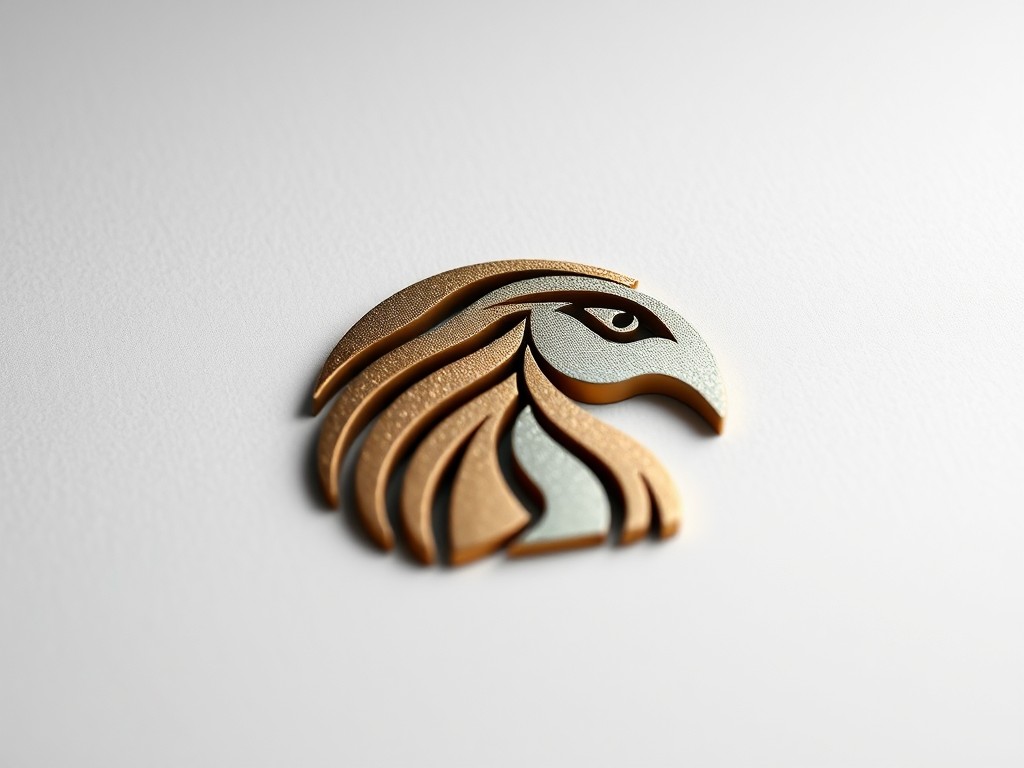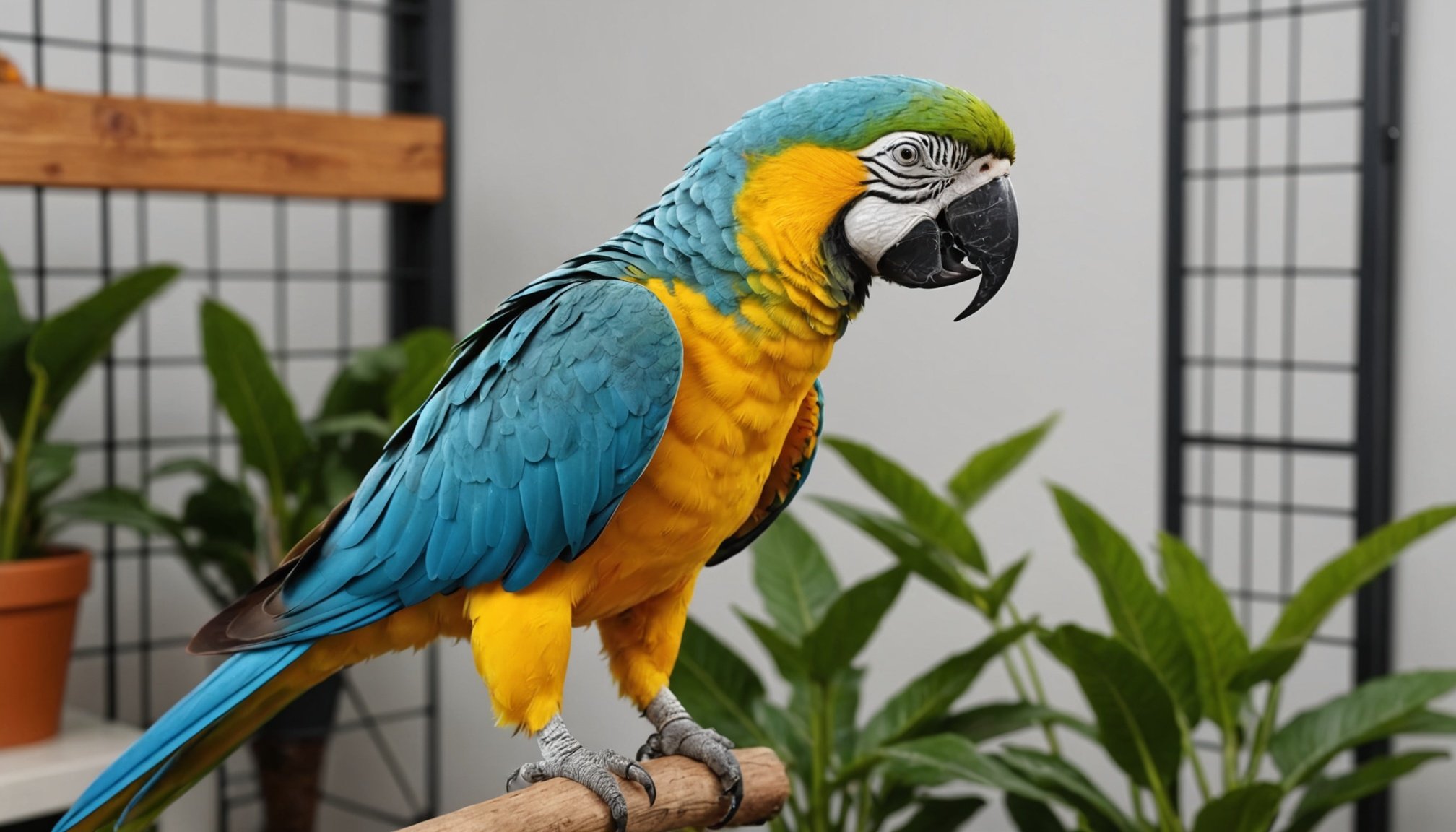Understanding the Importance of a Vibrant Living Space
Creating a stimulating environment for pet parrots is crucial for their overall well-being. A vibrant living space enhances mental health, especially for solo parrots who might feel lonely. Ensuring that your feathered friend has plenty to keep it engaged helps to prevent common behavioral issues such as feather plucking and excessive noise.
Environmental stimulation plays a vital role in maintaining a parrot’s psychological health. Imagine your parrot in a bland, uninspiring setting with nothing to interact with. The lack of activity can lead to boredom-induced behaviors and stress. By incorporating enrichment elements like toys, foraging opportunities, and social interaction, you introduce variety and complexity to their lives, which mimics their natural environment.
Also to see : Crafting a Secure and Stimulating Environment for Your Small Rodents
Additionally, it is crucial to prioritize safety when designing an engaging habitat. Always ensure that the items provided are non-toxic and suitable for parrots, eliminating small parts that could be accidentally ingested. Moreover, a well-arranged habitat promotes physical exercise, which is essential for keeping your bird healthy and happy.
Providing regular opportunities for change in their setting not only prevents monotony but can also contribute to a deeper bond between you and your parrot, ticking off boxes for both mental and physical benefits of a stimulating environment.
Also to read : Crafting a Comfortable Haven: Tips for Creating a Cozy Home for Your Pet Hedgehog
Essential Elements of a Parrot’s Living Environment
Creating an ideal habitat for parrots involves a combination of space, comfort, and natural elements. Ensuring your feathered friend has a harmonious home can significantly impact their well-being.
Space Considerations
Parrots thrive in environments that provide ample space for movement. A tightly confined area can lead to stress and health issues. Therefore, it’s essential to have a spacious cage that allows them to stretch and exercise their wings. This means ample room not just vertically, but horizontally as well.
Cage Setup
A parrot’s cage should be a sanctuary that mirrors their natural habitat as much as possible. Consider using a variety of enrichment items for parrots, such as toys and climbing apparatus, to foster mental stimulation and prevent boredom. Strategically arrange perches, ensuring they are of varying heights and textures to promote foot health.
Natural Light and Airflow
Natural light and airflow are crucial elements often overlooked in a parrot’s habitat. Position the cage where it can receive abundant sunlight, which supports their overall health, without exposing them to excessive heat. Good ventilation is also important, allowing fresh air to circulate freely. Incorporate plants around the cage, not only to purify the air but to create a more vibrant and engaging environment that closely resembles their natural settings.
Toys and Activities to Keep Your Parrot Engaged
Understanding the importance of playtime for pet parrots can greatly enhance their quality of life. Various types of parrot toys are specially designed to stimulate both mental and physical activity. Toys such as chew toys, puzzle feeders, and climbing ropes are excellent for keeping parrots engaged. Chew toys satisfy their need to gnaw, while puzzle feeders challenge their problem-solving skills, making feeding time more engaging.
Introducing creative activities for pet parrots can further enrich their environment. Consider setting up supervised interaction sessions where parrots can practice speech or mimicry, as they enjoy social interaction with humans. Simple games like fetch or hide-and-seek using favourite toys can also be entertaining and promote physical exercise.
Just like children, parrots can become bored with their toys. This is where toy rotation becomes vital. Regularly rotating toys can prevent boredom and maintain their interest. It also encourages exploration, as each rotation feels like an exciting addition to their environment. Remember, observing your parrot’s preferences is key to successful rotation. By diversifying the types of toys and activities, you ensure their continuous engagement and well-being.
Implementing these strategies creates an enriching ecosystem that supports your parrot’s natural instincts, ensuring they remain happy and healthy.
The Importance of Social Interaction
Parrot socialization plays a pivotal role in the overall well-being and happiness of your feathered friend. It’s not just about teaching them tricks or words, but about fostering a deep bond with pet parrots through a mix of trust-building and daily interaction. One technique to enhance this bond is to establish a routine that includes regular feeding times, play sessions, and open communication. This naturally encourages your parrot to respond positively and become more comfortable in its environment.
Daily interaction is critical. Just like humans, parrots thrive on communication. Engage with them throughout the day by talking, whistling, or even singing. This reinforces their sense of security and belonging, which in turn helps in developing a robust relationship.
Including other family members or pets can enhance your parrot’s socialization. By letting your parrot interact under supervision, you can encourage them to become accustomed to other voices and movements, which further strengthens their social skills.
Bonding with pet parrots requires patience, consistency, and understanding. Focusing on these elements ensures you nurture a strong, meaningful connection that benefits both you and your parrot, ultimately making home a haven for your vibrant companion.
Nutritional Needs for a Healthy Parrot
The foundation of a parrot diet significantly impacts its overall health and longevity. Understanding the nutritional requirements for pet parrots is crucial for their well-being.
Essential Foods
A balanced parrot diet should feature a diverse mix of elements to ensure optimal nutrition. It’s recommended that pet parrots consume high-quality pellets, which should make up 60-80% of their diet. These pellets are specially formulated to provide vital nutrients that parrots need each day. Alongside pellets, fresh fruits and vegetables are indispensable, offering vitamins and minerals to round out nutritional needs. Popular choices include apples, carrots, and leafy greens, which are both nutritious and enticing to parrots.
Treats and Supplements
Treats and supplements play an essential role in enhancing a parrot’s diet. Safe treats like small seeds and unsalted nuts can be offered in moderation, providing additional nutrients and promoting mental stimulation. Vitamin and mineral supplements can also be beneficial, especially if your parrot’s diet is lacking in certain areas. However, it’s important to consult with a vet to ensure you’re using the right products.
Hydration Tips
Finally, always ensure fresh water is readily available for your parrot. Clean water is vital for digestion and overall health. Regularly change the water to prevent bacteria buildup, and consider using filtered water to reduce contaminants. Keeping your parrot adequately hydrated supports its active lifestyle and vibrant plumage.
Addressing Common Challenges in Caring for a Solo Parrot
Caring for a solo parrot comes with unique challenges that can test pet owners. Parrot care challenges often include addressing behavioral problems that arise from their natural social needs not being met in isolation. One of the most prevalent issues is loneliness, which can lead to feather plucking or excessive screaming. Understanding these signals is crucial in identifying and addressing the underlying cause.
Solutions for solitary parrots are varied and should be tailored to the individual bird’s needs. Providing stimulating environments with toys and puzzles can help keep a solo parrot entertained and mentally active. Scheduling regular interaction and social time with the parrot can mitigate feelings of solitude. This helps develop a bond and reduces anxious behaviors.
Effective strategies can also involve seeking professional advice and community resources. Bird behaviorists can offer insights into specific actions owners can take to alleviate stress in solo parrots. Additionally, joining online forums or local bird clubs provides a supportive network where experiences and solutions are shared among parrot owners facing similar challenges.
To ensure a solo parrot’s well-being, owners need to remain attentive and proactive, continually exploring ways to nurture their feathered companion’s physical and emotional health.
Creating a Safe and Comfortable Habitat
Ensuring parrot safety is a priority for creating a comfortable living environment. Start by identifying and removing hazardous items. Potential threats include small toys or decorations that can be chewed and ingested, open windows without screens, and toxic houseplants. Prioritising safety means regularly checking these items to maintain a parrot-friendly space.
A quiet and calming space is essential for your parrot’s rest. Select a location away from loud appliances and high foot traffic areas. Parrots need these soothing environments to rest undisturbed, which, in turn, contributes to their overall well-being.
Routine maintenance of a hygienic habitat is crucial for your bird’s health. Access to fresh water and food is obligatory, but so too is the cleanliness of their living quarters. Regularly clean cages, remove uneaten food, and replace dirty water. Ensure the habitat remains a sanitary haven where your parrot can thrive.
Maintaining these conditions fosters a joyful and healthy lifestyle for your bird, making it more likely to remain happy and engaged within its environment. Remember, the collective approach towards their safety and cleanliness also enhances their comfort, thereby ensuring a more pleasurable coexistence. In choosing the right steps, you’ll see less stress for both you and your parrot.











